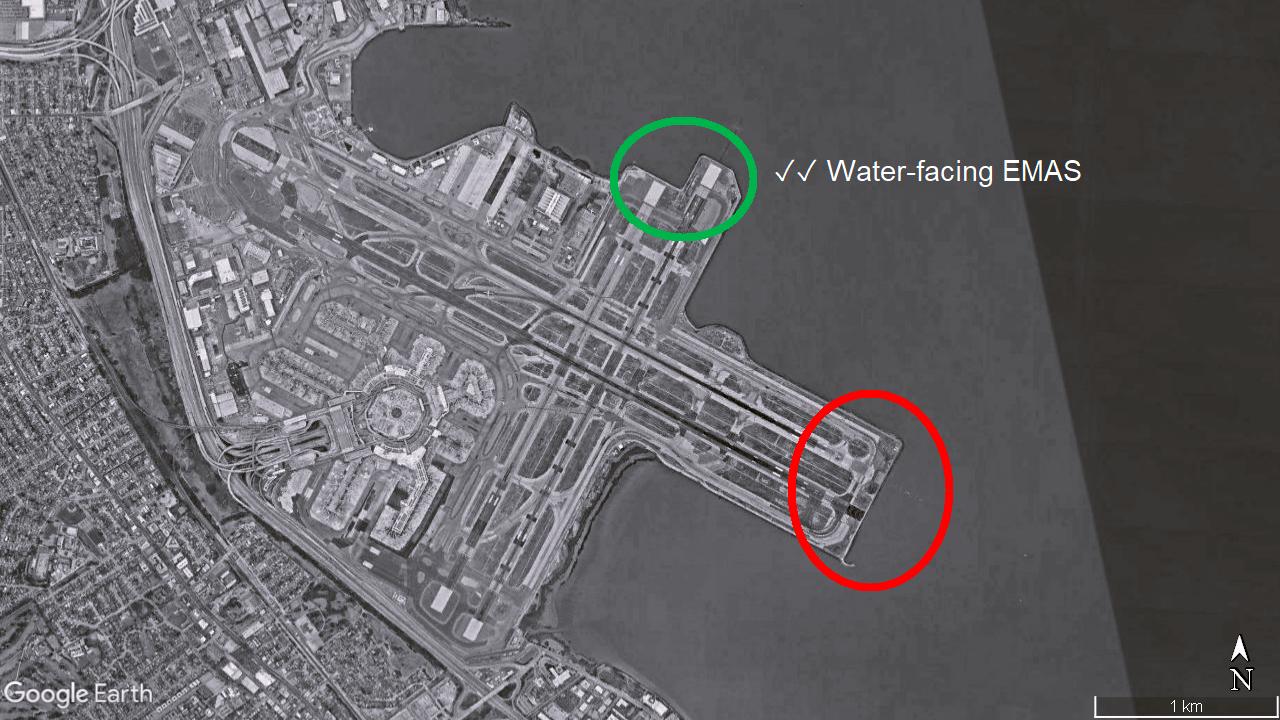In 2009 it was determined[a] BOS needs one RSA/EMAS improvement. BOS had already built two small beds on its own dime in 2005/6, but due to the determination, the one needed improvement was replaced on an extended new pier:
Boston Logan International Airport (Boston, Massachusetts) must improve one RSA. This airport is constrained by Boston Harbor and urban development. As an interim measure to improving the RSA, the airport sponsor installed a partial EMAS (at its own cost) and is studying the possibility of installing a runway deck or filling in part of Boston Harbor and then installing a full EMAS. In addition, FAA’s regional office raised the maximum feasible improvement cost to over $40 million because the runway is used by Boeing 747 aircraft and was the site of a fatal 1982 accident. The airport sponsor has started assessing the project’s environmental impact and plans to complete the project by late 2013. (oig.dot.gov; 2009)
In 2019 it was determined[a] BOS needs another, which is to be constructed 2025–2026 (approval yet to be granted in Summer 2023):
Based on the 2019 FAA determination for this runway [9/27], the preferred RSA enhancement option for preliminary design and permitting will be construction of a 306-foot wide pile-supported deck (or pier) extending 650 feet from the existing runway threshold, with an EMAS installed on the deck. (massport.com)
Side note: Runway 09 is not used by jets for landing (source: a Massport RSA report and e.g. 2019 runway usage data), but the new bed of 2025/26 will improve the safety margins for rejected takeoffs (30% of jet departures).
a: Determination is based on a continual analysis, and when determined, there is no time frame to start the project:
Today, modifications to standards no longer apply to RSAs. The airport owner and the FAA must continually analyze a non-standard RSA with respect to operational, environmental, and technological changes and revise the determination as appropriate.
A project to improve an RSA in accordance with the determination made in Paragraph 8 may be initiated at any time.
Similarly for SFO (San Francisco):
Southeast operations (operational assessment) are only less than 5% of the time:
Less than 5% of the time, aircraft follow the Southeast Plan, where planes take off to the east and land facing south. (flysfo.com)
Side note: Rejected takeoffs and undershoots are also important in RSA analysis (not just overruns). SFO's west operations (in use 95–98% of the time) utilizes the northeast water-facing direction for departures.

